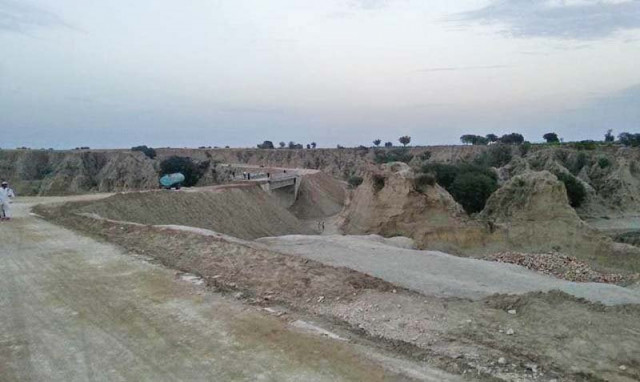Rural realities in Pakistan and India
While the landless poor are the backbone of agriculture, most development schemes continue to ignore their plight

PHOTO: EXPRESS
There are immense variances within rural areas on either side of the Pakistan-India border, of course, which an article of this length will not be able to examine. However, some salient issues are still common across many rural areas on both sides of the border, paying attention to which can help address the plight of the rural poor across much of the Indian subcontinent.
The extractive colonial rural administrative system implemented in the subcontinent relied on large landowners and landed peasants, but a vast number of landless rural households remained neglected and dispossessed. Since the independence, the approach of the Indian and Pakistani government towards addressing the problem of widespread rural poverty displays some divergences but also evident similarities.
In India, socialist tendencies and the grassroots appeal of the Congress have compelled many Indian states to carry out frequent land reforms. In the case of Pakistan, land reforms have been less frequent, and more readily subverted by the landed elite, who were also at the forefront of the Pakistan movement.
Pakistan implemented three half-hearted land reforms before such attempts were declared ‘un-Islamic’ in the 1980s. Indian attempts to implement land redistribution policies have also produced mixed results. The case of land reforms improving human rights indicators in Kerala and West Bengal are often quoted. Yet, the impact of land reforms in many other Indian states, such as Uttar Pradesh, Punjab and Orissa has been more complicated.
Orissa, for example, aimed to not only give land rights to the tenants but to also achieve the more pragmatic objective of promoting proper and effective utilisation of redistributed land. A plethora of progressive laws were also promulgated in the state, yet their implementation remained problematic.
Both Pakistan and India have increasingly relied on capital-intensive agricultural policies. This emphasis on boosting growth by encouraging farmers to purchase expensive seeds, fertilisers and pesticides, has boosted agricultural production but it has done little for the landless poor. In India, the inroads made by agri-giants such as Monsanto to provide expensive BT cotton seeds have led to major indebtedness of poorer farmers, especially when their crops fail due to frequent droughts. Indebted farmers committing suicides has now become a recurrent phenomenon. The plight of poor rural households in Pakistan is not much better.
Enthusiastic adoption of rural micro-credit schemes which provide high-interest small loans to the rural poor have remained unable to enable landless poor households to purchase land and become productive and self-reliant farmers.
Direct income support via the Benazir Income Support Programme in Pakistan, and some unconditional cash payment to agricultural landless labour families in Odisha, for instance, have provided relief to some landless families. However, the bulk of the landless rural populace is still relegated to work as sharecroppers, seasonal and daily waged agri-workforce. These landless workers often make much less than the minimum wage. They are overworked and exploited.
While the landless poor are the backbone of the agricultural production system in our part of the world, most official development schemes continue to ignore their plight. This explains why lingering rural poverty and unsustainable urban migration have become major problems for both Pakistan and India.
Published in The Express Tribune, June 8th, 2019.
Like Opinion & Editorial on Facebook, follow @ETOpEd on Twitter to receive all updates on all our daily pieces.














COMMENTS
Comments are moderated and generally will be posted if they are on-topic and not abusive.
For more information, please see our Comments FAQ